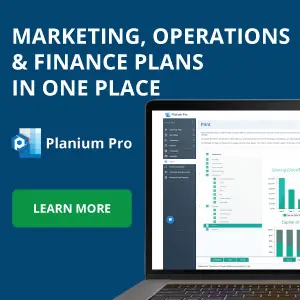Why Banks Say No to Business Startup Loans
It is challenging for a newly established company to obtain a commercial bank or lender loan. Start-up business loans are the riskiest loans that a bank or lender may encounter. As a result, it’s understandable that they’re concerned about granting loans.
But in reality, it is practically impossible to manage a small business these days with out-of-pocket money. Any expansion necessitates additional working capital, whether it is purchasing inventory, hiring new staff, or opening new sites. Banks are denying loan requests from small business owners for several reasons. We’ve outlined the top ten reasons, along with some ideas on alternative finance that can potentially be a good option for SMEs.
- Inconsistent cash flow – Banks favour SMEs with a predictable income stream and cash flow coming in every month. SMEs that cannot demonstrate this consistency are substantially more likely to be rejected a loan. According to Warren Lee of TheLendingMag Media Group, “Banks are very concerned that businesses have enough cash flow to make monthly loan payments in addition to covering their payroll, inventory, rent and other expenses. Unfortunately, many startups and small businesses struggle to keep enough money in their bank accounts even when they’re profitable, often because they have to pay 3rd-party suppliers upfront before they get paid for their product or service.”
Small business owners will better understand how much money is coming and going through their operations if they create a sticking and keep to a budget. If you discover a lack of cash flow, you should decrease spending and look for ways to bring in more money so that banks do not reject your application.
- Insufficient experience – Banks are more likely to deny a startup loan to someone who does not have at least a year of experience working in the industry.
- Lack of management – Similarly to the owner’s lack of expertise, lenders may be wary of a brand new company that lacks a solid and experienced management team to make the business a success.
- Raised regulation standards – Increased federal rules in the aftermath of the recession have led banks to become more conservative about the level of risk in their investment portfolio. Small firms are intrinsically riskier than huge organisations; thus, banks are unwilling to lend to them.
- Insufficient customer base – Almost like a “Catch-22” issue: you can’t receive a loan till you have clients, but you can’t start your firm and attract customers unless you have a loan. If you can demonstrate that you have some solid customers lined up, the lender may be interested.
- Bad credit history – When reviewing a business loan application, lenders will look at the applicant’s credit history first. A strong credit score demonstrates that the business owner has effectively managed their personal and corporate finances by avoiding bankruptcy and completing all payments on time. On the other hand, a low credit score can make lenders suspicious because it shows that the individual is unable to make well-informed financial decisions and is unable to meet the financial commitments outlined in the loan agreement.
The good news is that you may improve your credit score by paying your bills on time, controlling your credit card balances (rather than cancelling your cards), and correcting any errors that appear on credit reports. Keep in mind that negative credit on either the business owner or the business can impact the business’s ability to obtain a loan.
- Unprepared applicants – Small business owners may misunderstand the process of obtaining a small business loan and believe that they can walk into a bank, fill out an application, and get accepted on the spot. Small business owners should provide a business plan, financial statements or projections, bank statements, tax records, credit reports (business and personal), and copies of any relevant legal papers when applying for a traditional small business loan or a private capital loan (such as articles of incorporation, leases, contracts, operating licences or permits).
- Limited collateral – Because loan applications typically contain a request for a valid piece of collateral to complete the transaction and receive money, SMEs are prevented from obtaining finance due to a lack of appropriate collateral. That isn’t a problem for giant corporations that own real estate or other high-value assets, but it can be an impassable barrier for small and medium-sized firms.
- Debt-to-income ratio – Banks are hesitant to lend to businesses that have outstanding debts with other lenders. In many circumstances, they will not even consider lending to a company that has previously taken out a loan. Because many SME owners seek credit from various sources, especially during the start-up phase, this can be a considerable disadvantage when asking for a standard bank loan or cash advance.
- Personal guarantees – Banks want personal guarantees from business owners, but this also makes the owner personally liable for repaying the loan. That’s a dangerous situation for business owners who are struggling to keep up with their monthly costs.
Business Loans and Your Business Plan
One of the simplest methods to acquire a start-up business loan is to thoroughly design your business plan to answer all the concerns and objections that a lender may bring.
- Show how you intend to invest capital into the business. What do you bring to the table in terms of contributions to the company? What do you already own (that you have paid for)?
- Show where your collateral will come from, as well as your and any co-credit signer’s histories.
- Demonstrate the managerial experience you, your advisers, and executives have to bring the business to profitability quickly.
- Include spreadsheets to demonstrate when your company will have a positive cash flow (not just profit) and spend less than you are bringing in.
- Demonstrate your experience with similar businesses, or demonstrate that you have an experienced management team on your side.
Business planning software, like Planium Pro can assist you with structuring and laying out your business plan to meet the requirements of the harshest lenders, all the work that is left for you is to simply insert the information about your company.
Consider alternative financing options
So, what should you do if a bank refuses your loan request for your small business? Alternative finance is one of the greatest available possibilities. Alternative finance, which originates from non-bank firms that specialise in lending funds to small and medium-sized enterprises, is available in various options that enable lenders to offer flexible conditions for owners who require capital for developing businesses. Here are several options:
- Merchant cash advances
This is a company cash advance service that gives you a lump sum of money in exchange for a percentage of your future credit/debit card sales. Instead of making fixed monthly payments, MCAs function with your natural cash flow, deducting a tiny percentage of your credit/debit card sales until the cash advance is fully repaid.
- Friends and family
People you know may be able to help you raise startup capital. A direct loan or an equity stake in the company (stock ownership) may be possible. If the collateral is an issue, look for someone with personal assets which is ready to promise them to help get the firm started. You could possibly be able to find someone who will provide a personal guarantee to the lender. The drawback here is that money and personal relationships don’t often mix well, and it’s vital that everyone involved discusses the payment terms and expectations explicitly ahead of time, or things might become messy.
- Business loans
These unconventional loans are intended to make finance available to a broad spectrum of small businesses. The number of loans available in the industry varies. A mom-and-pop shop, for example, may require $5,000, whereas a fast expanding company may need $500,000.
- Credit card financing
You might consider credit card financing for your firm as a last resort. This is the last option because interest rates are expensive, and if your sales do not take off soon, you may find yourself in a financially tight spot.
The alternative funding industry is expanding and becoming more accepted by mainstream businesses. Alternative lenders are filing for IPOs, receiving backing from some of the world’s largest corporations, and providing previously unthinkable amounts of credit to SMEs.
If everything else fails, start small, remove what you don’t need, and keep working on it. Being inventive and persistent can help you come closer to launching your business. Best of luck!











